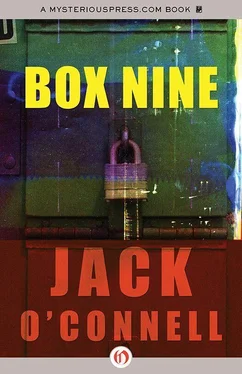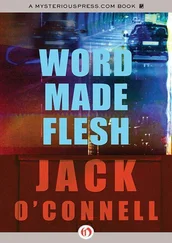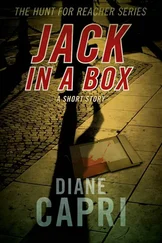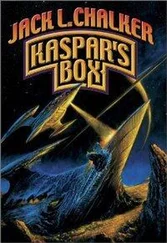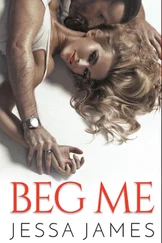“How’d you deplane?”
“Rough but intact.”
“No, I mean, was there a method or anything?”
“As a matter of fact, yes. I walked about ten, twelve miles a day. Fast pace.”
“Around Quinsigamond?”
Woo nods. “Went through a half dozen Adidas in a little over half a year. And I poured gallons of this tea through my body. I drowned in tea. Honestly, I choked on it, I drank so much, but it washed everything out.”
“Must’ve made it tough walking.”
“Again, it’s easier for a man. There’s usually a tree to step behind.”
“I lift weights.”
“It’s not the same thing. It’s not aerobic. Do you still think you’re in control?”
“Absolutely. Have I looked rattled to you? I’ll know when the compass swings.”
“A classic cliché. Where do you buy?”
“C’mon, Freddy.”
“Oh, of course. Bangkok. Little Max?”
“He’s been helpful on occasion.”
“Curious drug, speed. I really fell in love. Head over heels.”
“Mine’s much more a working relationship.”
“Sure. You’ll be chasing it around the desk before you know it.”
“It’s all a matter of will, Freddy.”
“How long have you been a regular abuser? Do you find you can still think clearly? I found I could for the first year, almost two. Then things shifted. It was really as fascinating as it was terrifying. The brain images started coming faster than my ability to identify and label them. Like race cars at the Indy 500. Have you ever had a seizure?”
“That’s pleasant. No, never. Listen, enough on this topic. Why don’t you show me the rest of this place.”
Woo smiles, brings his mug up to his mouth, and stares into it as he sips.
“All right,” he says. “Let’s have a look.”
She follows him deeper into the room. Somehow, it seems to get wider as they approach the library area. There are books, most of them big, thick volumes, oversized and without dust jackets, lying in stacks on the floor. The books look like old, obscure encyclopedias. Some of the stacks are eight and nine volumes high, rising up three and four feet high like models of ragged skyscrapers.
On either side of the library area are two identical couches, both covered in black leather and looking inviting, like you’d continue to sink deep into the cushions a full five minutes after you lay down. There’s no sign of chrome or wood on them and Lenore thinks they look like weird twin animals, some mistake in genetically controlled husbandry. She stares from one to the other and thinks of a flabby, glossy black cow lying down in a rainy field at night.
The only other piece of furniture in the room is an enormous monstrosity of a desk that almost spans the width of the building. It’s actually several desks and tables cobbled and bolted together to form a startling new creation. And it is genuinely startling. It begins at either end of the room with two old-fashioned rolltops complete with an assortment of cubbyholes and tiny drawers. They face each other and jut out perpendicular from the back wall of shelving forming two secretarial L’s, two right angles turning at either end of the main desk body. The main body is comprised of two conventional mahogany executive desks, each bolted to its adjoining rolltop, and then joined to an eight-foot conference table that runs between them.
Stationed behind the table, in the center of the whole setup, is the largest swivel chair Lenore has ever seen. She decides it must have been custom-built. Of course it’s black and leather with a subtle pucker design, but it’s the back of the chair that’s so attention-getting — it rises up, narrowing as it goes, almost five feet tall at the top of its curve. Lenore thinks the height is a foolish mistake. It’s humorous and ends up detracting from the rest of the power look of the office.
Stationed on top of the two conventional desks at either side of the main table are state-of-the-art reel-to-reel and compact disc players. Lenore spots three different sets of headphones hanging from hooks in the rolltops. In the center of the conference table sits an oversized computer monitor and the longest keyboard she’s ever seen. It looks more like a musical keyboard, a synthesizer keyboard, than one for a computer or word processor. There’s no logo that she can see on any of the equipment, but she can tell in a glance it’s not Apple or Wang or IBM. It’s got to come from someplace she’s never heard of.
Taking up every bit of surface space around the sound and computing equipment are small versions of the book stacks on the floor. There are several stacks of paperbacks with plain white covers and a couple foot-high blocks of typing paper, the top sheet which is covered with tiny type that seems to run off the page in all directions, marginless. Lenore isn’t close enough to be sure, but it’s possible the words are in another language.
She steps up next to the main table and knocks on it like it was a door.
“So,” she says, “you tell me who the Nazi is.”
Woo squints at her and pulls his head in like a turtle. “The desk,” he says.
“A desk Goebbels and Göring would fight over.”
Woo gives a small smile. “The last time I checked, furniture choice was not a characteristic of the Nazi.”
“We could argue about that, Freddy.”
“I need a great deal of room. I need to spread out when I work.”
“Ship this baby down to Latin America. There’s a whole bunch of petty dictators who’d kill for this monster.”
“You find it offensive.”
“Overwhelming. It’s the biggest desk, if you can call it a desk, that I’ve seen. You should coin a new word, Dr. Woo. This kind of thing requires an addition to the language.”
“All I can tell you is it suits my needs. Form follows function perfectly.”
“Yeah, and there’s a lot more going on there besides.”
“There’s so much room here. I decided, why not use it?”
“Uh-huh. Where do you sleep, Freddy?”
“The couches are tremendously comfortable. They fold out into beds. Often I don’t even bother pulling one open. I’ll sleep right on the couch.”
“Okay, Freddy, let’s think about this for a second. You’ve gone to the trouble of making Godzilla’s desk in here, because there’s so much room, as you say, but you don’t own a bedroom set.”
His voice goes low and his eyes shift to the floor.
“My work is quite important to me, Lenore.”
She realizes she’s offended him and she’s a little surprised that she regrets what she’s said. Whatever mood of sparring and playfulness was between them feels gone and in its absence she’s aware of how much she enjoyed it. She wants to get it back, reinstall it at once. She reaches up and places a hand on Woo’s shoulder and says, in an apologetic voice, “I’m sorry, Fred, I was just teasing. I stepped too far there. I just got caught up, carried away a little, you know. I was just riding you a little and I just … I don’t know.”
Without lifting his eyes he takes her wrist and pulls it to his mouth and plants a long kiss on the inside span of skin just below the border of her hand.
She doesn’t say a word and she doesn’t pull away. She wishes only that she had a moment to swallow some crank. She wouldn’t even need water for the wash-down.
He moves his way from wrist down the inner arm to the bend at the elbow. She knows she should find it funny, a caricature, a sloppy imitation of John Astin in a long-ago sitcom. But she doesn’t react with a laugh or a comment. She lets him go, lets him work on the inner skin of her arm, kissing it slowly, wetting it barely. Her breath starts to come a little heavier. He makes the jump to the neck beautifully. He kisses below the ear and starts to suck and lick and really taste her skin, take in her salt and maybe a bitter drop of left-over perfume. She pushes herself closer to him, works her way into a tighter embrace so that their bodies press together in longer, unbroken spans.
Читать дальше
